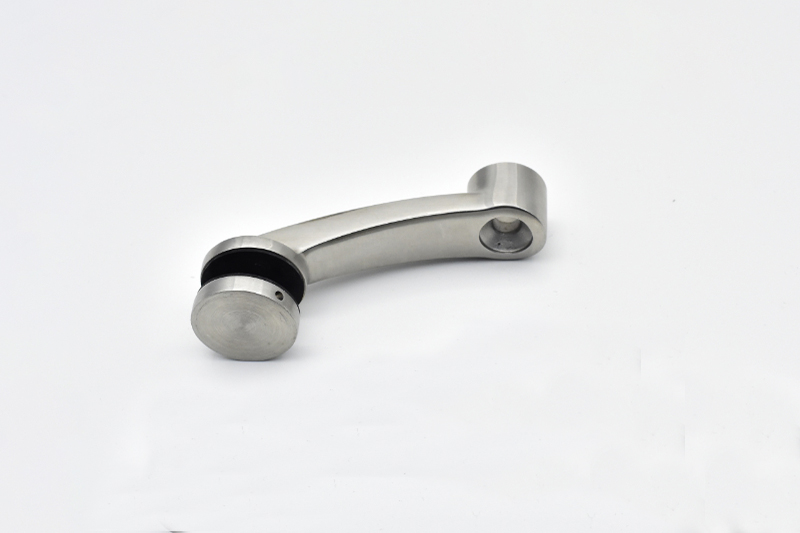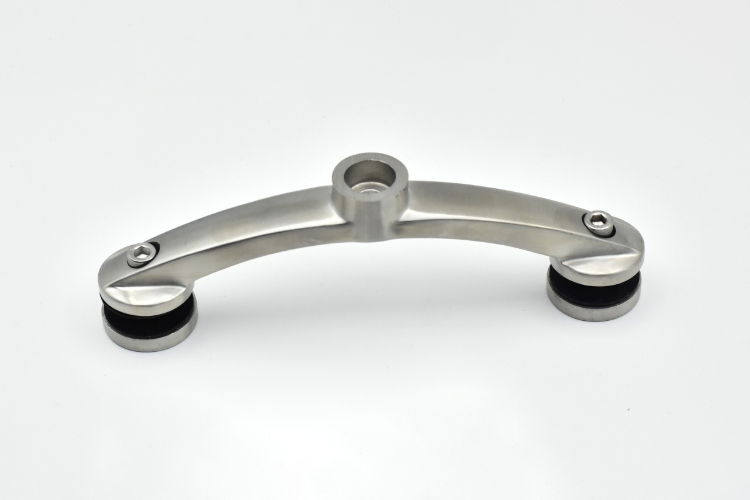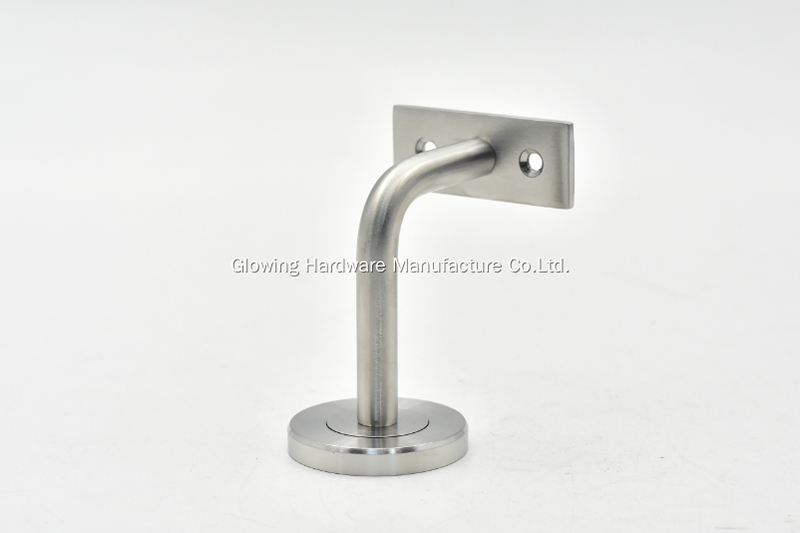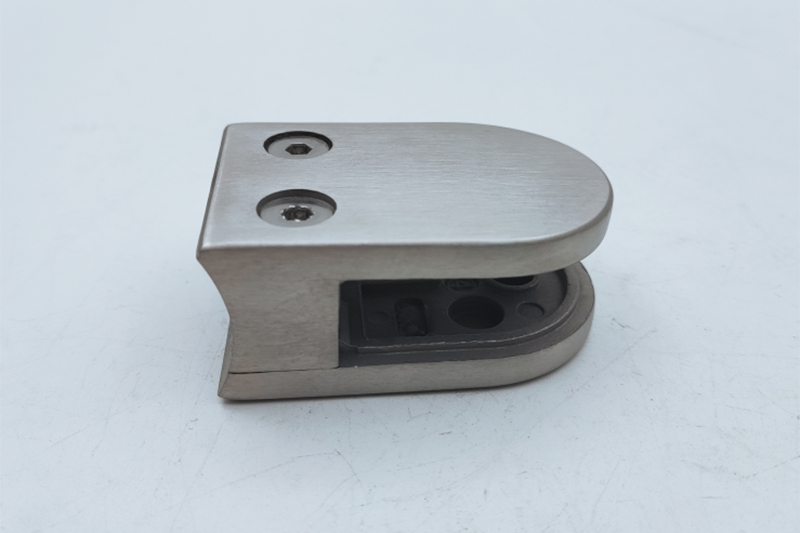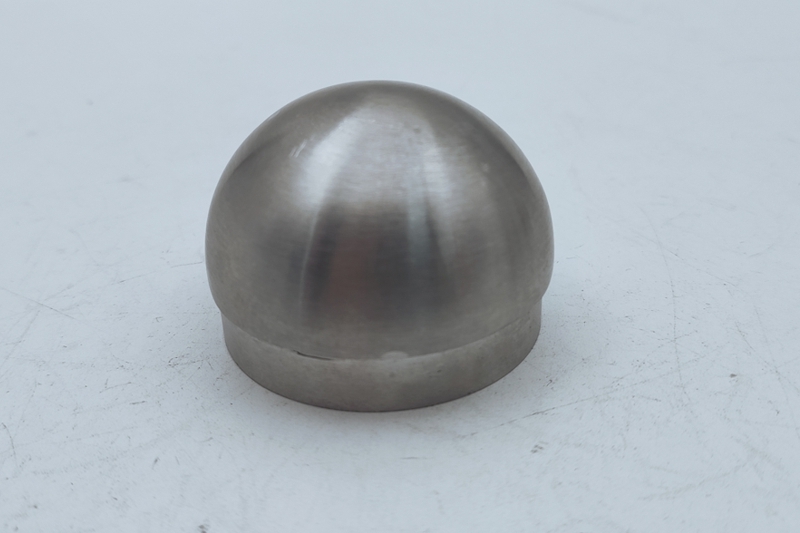Railing End Cap
- Product Information
Railing End Cap achieves the ultimate closure, installed on the railing while enhancing the railing's appeal. This handrail end cap is made of SS304 stainless steel. It can be used both indoors and outdoors, always maintaining a bright and decent appearance while protecting the handrail from wear, damage and other risks. Thanks to this simple and practical handrail end cap, the maintenance of the stairs remains intact in an ideal situation, as the ends of the strongest handrails will not be overly fatigued, thus extending the life of the handrail system. Its simple structure allows for easy installation in the shortest possible time. As a reliable China Railing End Cap factory, we focus on producing high-quality stainless steel products that reflect the unique requirements of our customers.
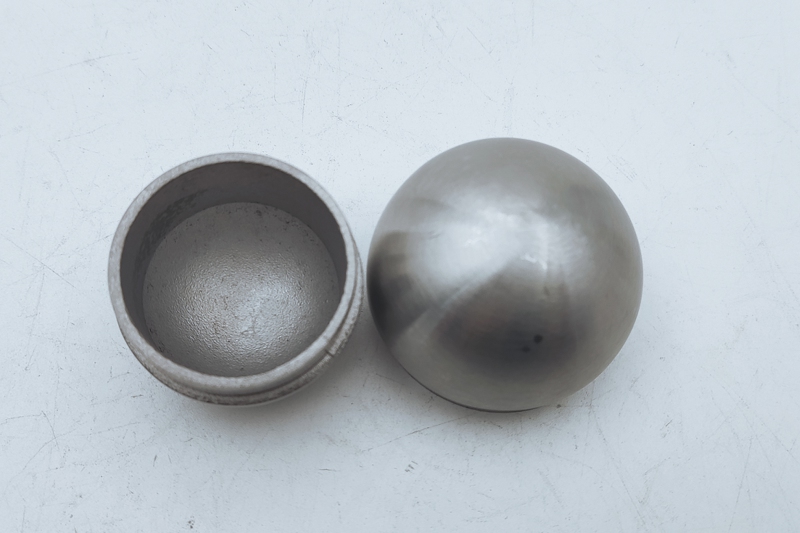
Railing End Cap Parameters:
| Model | GVF014 |
| Material | SS201/SS304/SS316 |
| Railing diameter: | φ38.1 / φ42.4 / φ50.8mm /Customized |
| Finish | Satin, Mirror Polished, Antique Brass, Antique Copper, Matt Black, PVD / Customized |
| After-Sale Service | Online Technical Support |
| Application | Shopping Mall, School, Hospital, Gym, Fitness Club, Office Building, Swimming Pool and Other Public Area |
| MOQ | 300 pieces |
| Place Of Origin | Guangdong, China |
| Brand Name | Glowing Hardware |
| Package | One piece in one white box/color box in Standard export carton |
| Delivery Time | Usually 30-35 days |
| Sample | Accept |
Railing End Cap Features
1. Material properties
Corrosion resistance system: 316 stainless steel contains 2-3% molybdenum, and remains stable in coastal environments with Cl- concentrations > 500mg/L
Mechanical strength: The hardness after cold working can reach HV350, and the tensile strength is ≥520MPa
Environmental adaptability: Pass 300 hours of salt spray test (ASTM B117 standard)
2. Structural design
Interference fit: The inner diameter tolerance is controlled at ±0.1mm, achieving an assembly interference of 0.05-0.15mm
Anti-slip structure: Some models are equipped with embedded silicone rings or elastic buckle devices
Drainage design: A Φ2-3mm diversion hole is preset at the bottom to avoid water corrosion
3. Surface technology
Mirror polishing: 0.05μm diamond grinding paste is used to achieve optical-grade reflection
Wire drawing: 180-240 mesh nylon brushes are used to create anti-fingerprint patterns
PVD coating: Decorative coatings such as titanium/rose gold can be customized
Railing End Cap Application areas
1. Building enclosure system
Glass curtain wall connection: cooperate with point curtain wall claws to eliminate burrs at the end of the keel
High-altitude corridor protection: meet the IBC standard for 150mm rounded corners at the end of the guardrail
Fireproof isolation belt: cooperate with ceramic fiber sealing material to form a fire barrier
2. Transportation infrastructure
Cross-sea bridge: 316L material resists marine atmospheric corrosion
Subway platform: anti-collision buffer design at the connection of the guide belt
High-speed guardrail: terminal energy absorption component of the disintegration energy dissipation device
3. Special industrial environment
Food factory: seamless structure to avoid microbial growth
Chemical plant: acid and alkali resistant surface passivation treatment
Clean workshop: electromagnetic shielding conductive end cap
Railing End Cap Installation specification
1. Preliminary preparation
Measure the actual outer diameter of the pipe (average value of three-point measurement method)
Remove port burrs (use chamferer to process C0.5 chamfer)
Clean contact surface (use acetone to wipe to remove oil stains)
2. Assembly process
1. Normal temperature assembly: use a rubber hammer to tap into place when the ambient temperature is 10-30℃
2. Thermal expansion and contraction method:
Immerse the end cap in 120℃ hot oil to expand
Quickly insert the pipe end and cool and shrink naturally
3. Auxiliary fixation:
Structural adhesive bonding (3M DP420 epoxy adhesive)
Mechanical locking (M4 countersunk screw fastening)
3. Acceptance criteria
Circumferential clearance ≤ 0.2mm (feeler gauge detection)
Axial displacement < 1mm (20N tensile test)
No hammer marks on the appearance (visual inspection)
Railing End Cap Maintenance
1. Daily care
Cleaning cycle:
Coastal areas: weekly fresh water flushing
Industrial areas: half-monthly neutral detergent scrubbing
Special tools:
Microfiber cloth (60/40 polyester-cotton blend)
Nano polishing paste (containing CeO2)
2. Deep maintenance
Passivation repair:
1. Soak in citric acid solution (10%) to remove rust
2. Nitric acid (20%) passivation treatment for 30 minutes
3. Rinse with pure water and dry
Coating renovation:
Local scratches: electrochemical polishing repair
Large area damage: re-PVD coating


